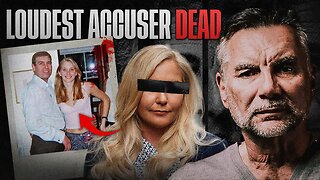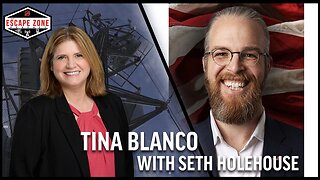Premium Only Content

The Khrushchev and Brezhnev years
The Khrushchev and Brezhnev years
In the power struggle that erupted after Stalin's death in 1953, his closest followers lost out. Nikita Khrushchev solidified his position in a speech before the Twentieth Congress of the Communist Party in 1956 detailing Stalin's atrocities and attacking him for promoting a personality cult. As details of his speech became public, Khrushchev accelerated a wide range of reforms. Downplaying Stalin's emphasis on heavy industry, he increased the supply of consumer goods and housing and stimulated agricultural production. The new policies improved the standard of living, although shortages of appliances, clothing, and other consumer durables would increase in later years. The judicial system, albeit still under a complete Communist party control, replaced police terror, and intellectuals had more freedom than before.
In 1964 Khrushchev was ousted by the Communist Party's Central Committee, which charged him with a host of errors that included Soviet setbacks such as the Cuban Missile Crisis and the deepening Sino-Soviet Split. After a brief period of collective leadership, a veteran bureaucrat, Leonid Brezhnev, took Khrushchev's place.
Despite Khrushchev's tinkering with economic planning, the economic system remained dependent on central plans drawn up with no reference to market mechanisms. As a developed industrial country, the Soviet Union by the 1970s found it increasingly difficult to maintain the high rates of growth in the industrial sector that it had enjoyed in earlier years. Increasingly large investment and labor inputs were required for growth, but these inputs were becoming more difficult to obtain, partly because of the new emphasis on production of consumer goods. Although the goals of the five-year plans of the 1970s had been scaled down from previous plans, the targets remained largely unmet. Agricultural development continued to lag in the Brezhnev years.
Although certain appliances and other goods became more accessible during the 1960s and 1970s, improvements in housing and food supply were not sufficient. The growing culture of consumerism and a shortage of consumer goods, inherent in a non-market pricing system, encouraged pilferage of government property and the growth of the black market. But, in contrast to the revolutionary spirit that accompanied the birth of the Soviet Union, the prevailing mood of the Soviet leadership at the time of Brezhnev's death in 1982 was one of aversion to change.
-
 LIVE
LIVE
Michael Franzese
47 minutes agoHow Many Epstein Accusers Have to Die Before We Get the Truth?
372 watching -
 1:17:09
1:17:09
Awaken With JP
4 hours agoDiddy List: Names Have Been Named - LIES Ep 90
53.6K18 -

The Quartering
3 hours agoDaily Wire CIVIL WAR Over Karmelo Anthony, GTA 6 Trailer Drops, Lady Gaga TERROR Attack & More
87.9K31 -
 30:00
30:00
Clownfish TV
10 hours agoDisney Adults: Don't Call Disney Woke!
1.04K12 -
 36:53
36:53
The Brett Cooper Show
1 day ago $3.32 earnedBill Belichick’s BIZARRE Relationship and Meghan Markle’s Podcast Disaster | Episode 28
8.65K16 -
 LIVE
LIVE
The HotSeat
37 minutes agoPete's First 100 Days: "V" for VICTORY!
505 watching -
![[Ep 665] Fauci to Prison | Trump Ends Gain of Function, Saves Beagles | Guest Sam Anthony [your]NEWS](https://1a-1791.com/video/fww1/14/s8/1/9/k/e/I/9keIy.0kob.1-small-Ep-665-Fauci-to-Prison-Trum.jpg) LIVE
LIVE
The Nunn Report - w/ Dan Nunn
59 minutes ago[Ep 665] Fauci to Prison | Trump Ends Gain of Function, Saves Beagles | Guest Sam Anthony [your]NEWS
174 watching -
 LIVE
LIVE
StoneMountain64
2 hours agoWildest Warzone CUSTOM Games
449 watching -
 1:38:28
1:38:28
Russell Brand
3 hours agoHOLY SH*T… Trump ENDS Gain Of Function, Tulsi CONFIRMS Ukraine Bio-Labs! – SF578
145K42 -
 42:35
42:35
The Escape Zone
4 hours ago $0.02 earnedDigital Surveillance, Biblical Prepping & Grid-Proof Survival – Seth Holehouse Unfiltered
21